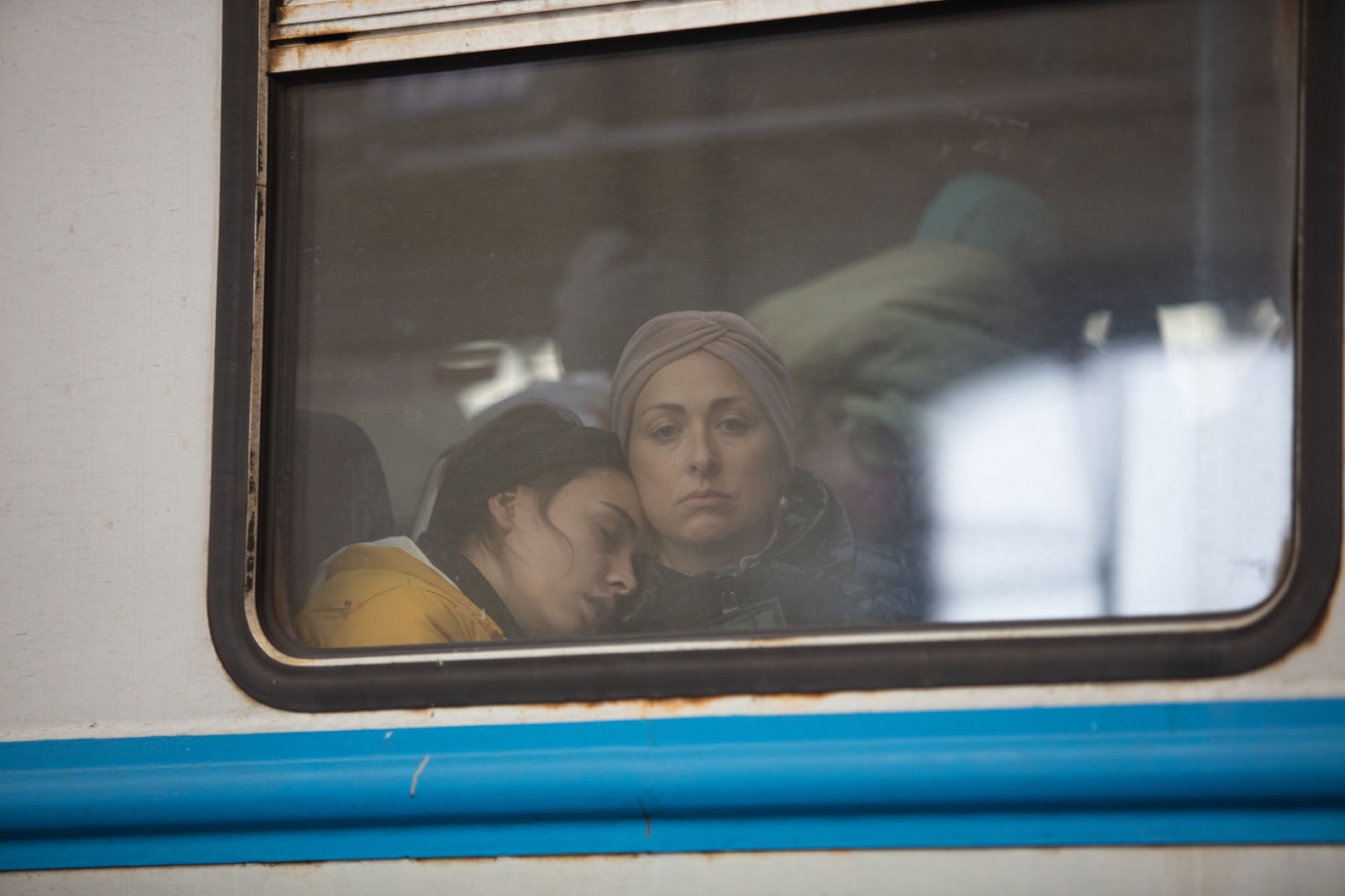Gruwelijke beelden ook bij mensen die oorlog niet hebben meegemaakt
‘Intrusies’ zijn zich spontaan, onvrijwillig opdringende beelden of gedachten aan een traumatische gebeurtenis. Schokkende ervaringen zijn vaak de aanleiding, bijvoorbeeld in de context van geweld, rampen of oorlog. In haar proefschrift toont Patricia Dashorst aan dat mensen ook intrusies kunnen hebben over gebeurtenissen die ze zelf niet hebben meegemaakt. Zij promoveert hierop op 9 november 2023.
PTSS
Bij de meeste mensen zijn de intrusies van een schokkende gebeurtenis slechts een korte periode aanwezig. Bij anderen blijven ze zich langer opdringen of verschijnen ze later in het leven en kunnen dan symptomen van een posttraumatische stress-stoornis (PTSS) zijn. Uit klinische observaties blijkt dat intrusies ook betrekking kunnen hebben op situaties waarbij men niet zelf aanwezig was. Psychiater en systeemtherapeut Dashorst onderzocht intrusies bij circa honderd na de Tweede Wereldoorlog geboren personen. Dit waren patiënten die in behandeling waren vanwege klachten die samenhingen met opgroeien als kind in een gezin met ouders die wreedheden in de oorlog hadden overleefd. Bij de onderzochte groep bleek dat intrusies over zelf (direct) en niet-zelf (indirect) meegemaakte gebeurtenissen even vaak voorkwamen en vergelijkbare kenmerken hadden. Een verschil werd gevonden in fantasiegeneigdheid (fantasy proneness) als persoonskenmerk, dat een unieke en sterke samenhang met indirecte intrusies bleek te hebben.
Visuele beelden
De door Dashorst onderzochte patiënten hadden ouders die de Tweede Wereldoorlog hadden overleefd. De indirecte intrusies waarmee de (volwassen) kinderen kampten, waren gerelateerd aan gruwelijke scènes, zoals wreedheden in concentratiekampen van de nazi’s, gaskamers, Japanse interneringskampen en deportaties. Er werden visuele beelden beschreven van stervende mensen, lijken, geweld, vernedering, ziekte, verhongering en het gescheiden worden van familieleden. Als voorbeeld uit haar eigen klinische praktijk noemt Dashorst de zoon van een Holocaustoverlevende. Hij vertelde over intrusies met gedetailleerde voorstellingen van kinderen die vermoord worden in gaskamers. Vaak bevatten de intrusies emoties als angst, vrees en kwetsbaarheid en werden ze meestal vanuit het eerste-persoonsperspectief verteld.

Relevantie voor heden en toekomst
Het optreden van intrusies geeft aan hoe groot de gevolgen van negatieve gebeurtenissen op de langere termijn kunnen zijn, ook voor niet-primair getroffenen. Dashorst: ‘Het maakt het onderzoek ook voor nu relevant, vanwege de verstrekkende gevolgen van oorlog. Er is geen reden om aan te nemen dat kinderen van overlevenden van andere oorlogen, bijvoorbeeld die uit Afghanistan, Syrië, Rwanda, Oekraïne, Israël, Gaza of kinderen van slachtoffers van huiselijk of werk-gerelateerd geweld hiertegen beschermd zullen zijn.’ En dat geldt ook voor kinderen die nog geboren zullen worden.
ARQ Centrum ’45
Dashorst is werkzaam bij ARQ Centrum ’45, het landelijke expertisecentrum voor diagnostiek en behandeling van complexe psychotraumaklachten. Het richt zich onder meer op mensen die door hun werk getraumatiseerd zijn, zoals veteranen, politiemedewerkers, ambulancepersoneel, brandweerlieden en journalisten. Daarnaast behandelt ARQ Centrum ’45 overlevenden van de Tweede Wereldoorlog en hun nabestaanden, vluchtelingen, kinderen, jeugdigen, gezinnen en slachtoffers van seksueel geweld. Patiënten hebben vaak een combinatie van psychische klachten of stoornissen, waarvan PTSS (posttraumatische stressstoornis) de meest bekende is. ARQ Centrum’45 is onderdeel van ARQ Nationaal Psychotrauma Centrum.
Informatie
Kirsten Ruter – Communicatie ARQ Nationaal Psychotrauma Centrum – k.ruter arq.org en tel 0626726734. ARQ Nationaal Psychotrauma Centrum: www.arq.org‘ Intrusies’ zijn zich spontaan, onvrijwillig opdringende beelden of gedachten aan een traumatische gebeurtenis.
Meer nieuws
-
17 februari 2026
Van ghostbuster tot rampenonderzoeker
-
03 februari 2026
‘Daar zit een goeie kop op’
-
20 januari 2026
Alcohol, appen en e-bikes
